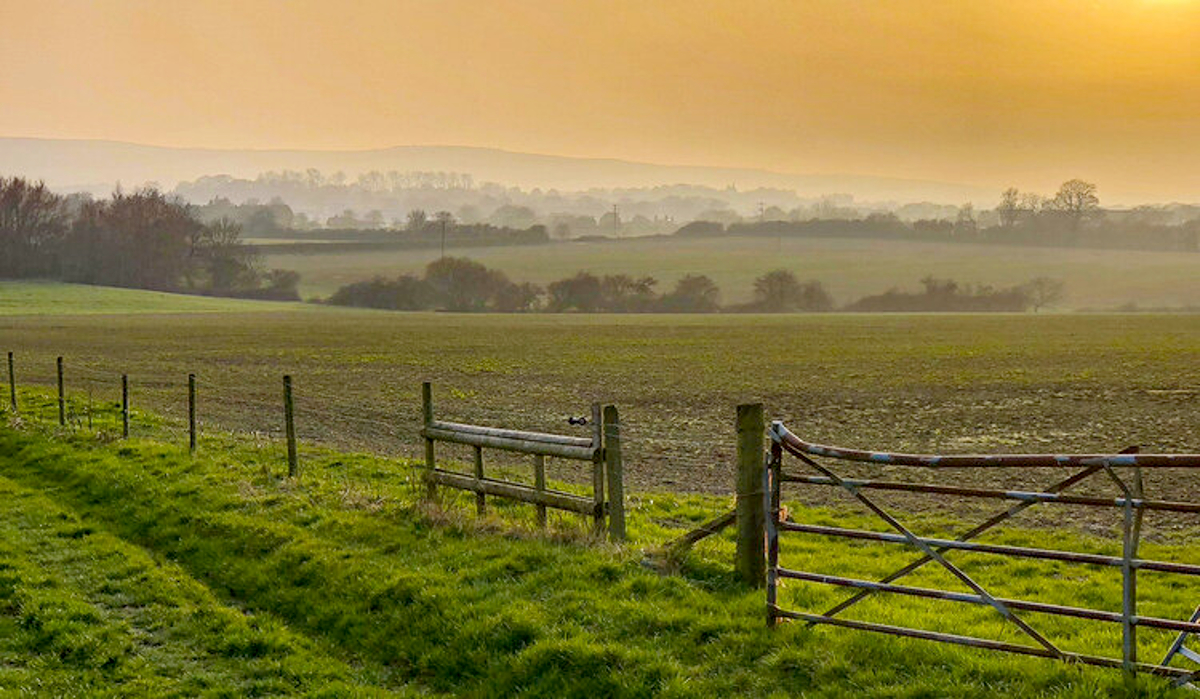
The elitest of England’s public schools has sparked outrage by proposing to build 3,000 houses in rural East Sussex.
Eton’s propaganda eulogises a new town that will be architect-designed, self-sufficient and eco-friendly, a nirvana so perfect its inhabitants will not need to travel for work or leisure. The profits (a mere £120 million), will provide scholarships for up to 35 underprivileged children and – ahem – will help cover some building costs Eton has incurred.
Those 400 acres, just skirting a National Park, are one of the few remaining areas in the South East where you can turn your lights off at night and it is black; where you hear birdsong, not traffic, and where the meandering Bevern stream provides a rare and unpolluted spawning ground for sea trout. In short, it is a walker’s paradise; the ‘green and pleasant land’ of everyone’s favourite patriotic hymn.
As one commentator – who does not even live in Sussex – stated: it’s the sophistry of the arguments that really hurts! Scholarships help a private school’s charitable status – but with an unrivalled alumnus network of the great, the gentry and the good, surely it’s possible for Eton to finance scholarships and a large repair bill with a few phone calls? As if a new town in an area just next to a National Park is not going to become a dormer town for wealthy commuters to Brighton or London! It’s raping the land and locals for profit.
Governments must beware: the Chesham and Amersham by-election in June showed voters want to protect what remains of our countryside, not only because mental-health-preserving green belts are being eroded or, selfishly, to sustain property prices, but also because voters are realising the house builders and construction industry have too much clout in Westminster and our political masters do not have the will, stomach or strength to stand up to it. Boris’s promises to ‘build, build, build’ – and those billionaire developers – look set to lose Tories the middle England vote.
Let us consider: why do we need so many new homes?
We actually have a declining total population, with both Brexit and Covid encouraging economic migrants to move elsewhere – more than counteracting the illegal immigration from the helpful French.
Ah but, you say, we have more divorce, more people living longer, more staying single and a greater number of second home-owners.
What this really means is that many of the people claiming to “need” a second home more accurately (and naturally) “want” to buy their own home. This is a very different thing.
Mark Twain advised ‘buy land: they aren’t making it any more’. The Eton project raises the question: at what point do we prioritise saving what remains of our unspoilt countryside over company balance sheets and an individual’s desire to own a property? At what point do the political parties come together to work out a strategy that is sustainable:
- how can we stop taking the easy route of building on green field sites?
- how do we ensure developers use up brown field sites, some of which they have stockpiled?
- how do we face the economic crunch when we stop pretending the construction industry is building the right things, at the right quality, in the right places for the right people?
- how – in a capitalist country – do we prevent beautiful areas becoming retirement villages that dispossess local people?
- how – in a capitalist country – do we discourage prudent property purchases as pensions without creating a burden on future governments?
- how – in a consumer society – do we balance housing the needy with changing the attitude that owning a property is a right?
- do we – as is proposed – trust the Government by centralising control, or give local councils the wherewithal properly to fight the might of profit-motivated developers?
As Joni Mitchell said, “You take paradise, and put up a parking lot.” When it’s gone it’s gone.
To help the fight against the Eton proposal, visit the site below: https://www.donturbanisethedowns.com then follow the ‘public consultation’ section which gives you a 5 minute option, or longer if you have time, to register your opinion with Lewes District Council.


